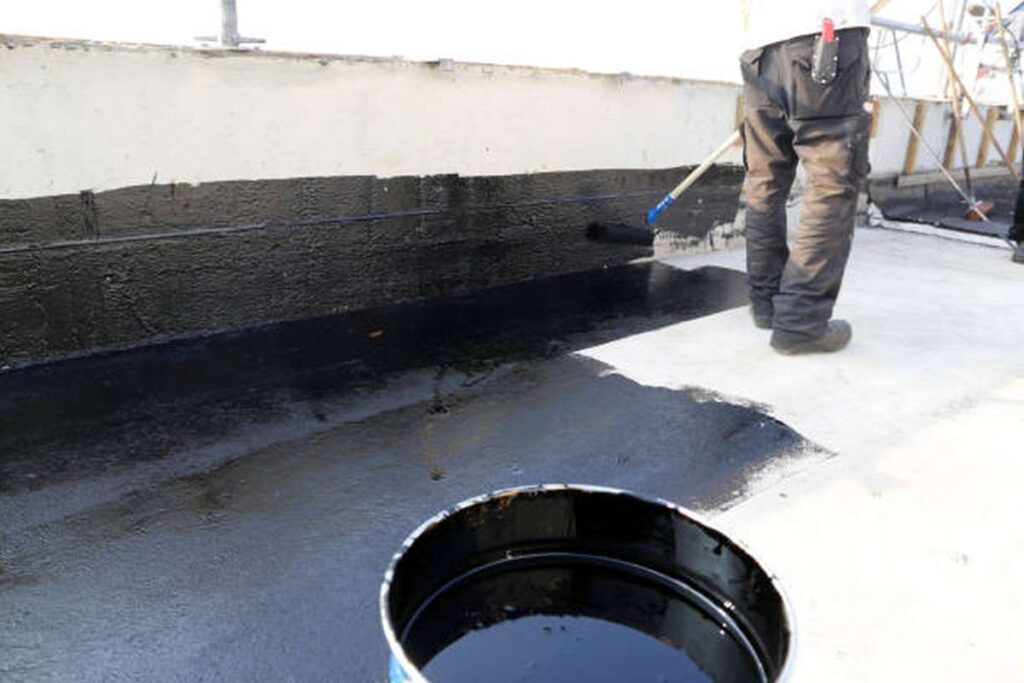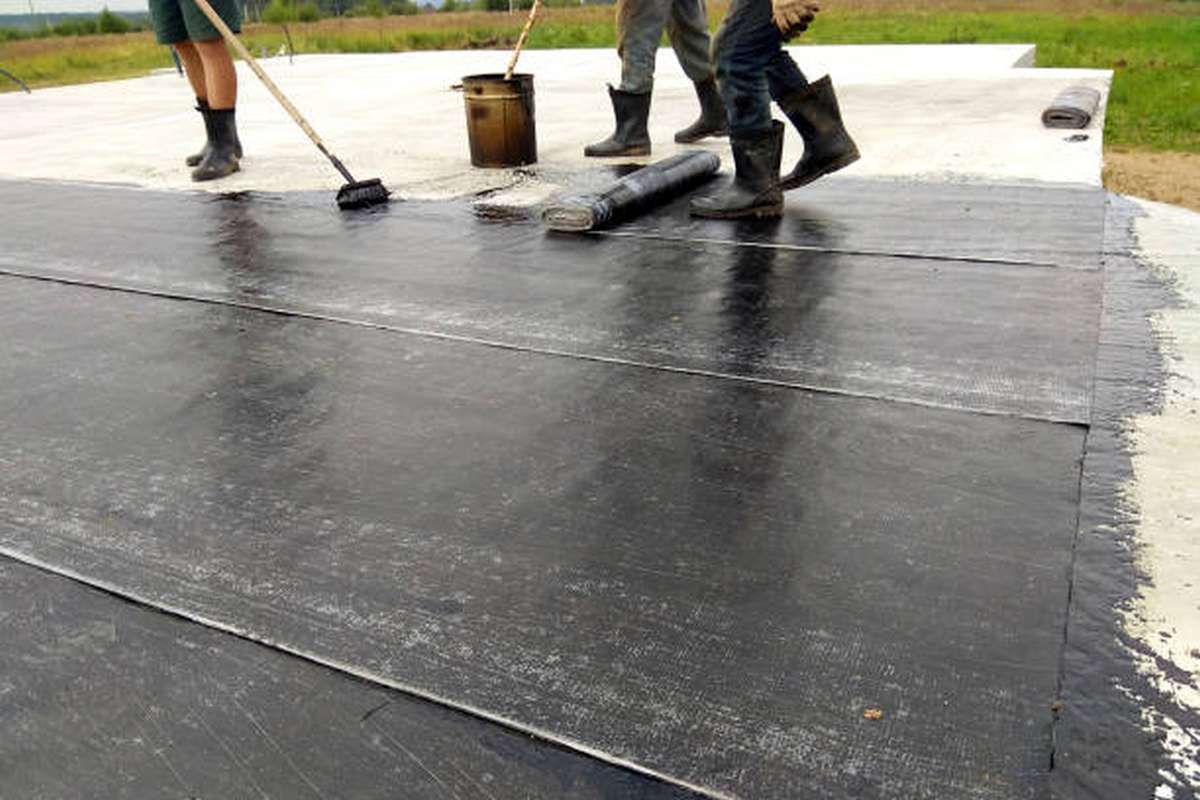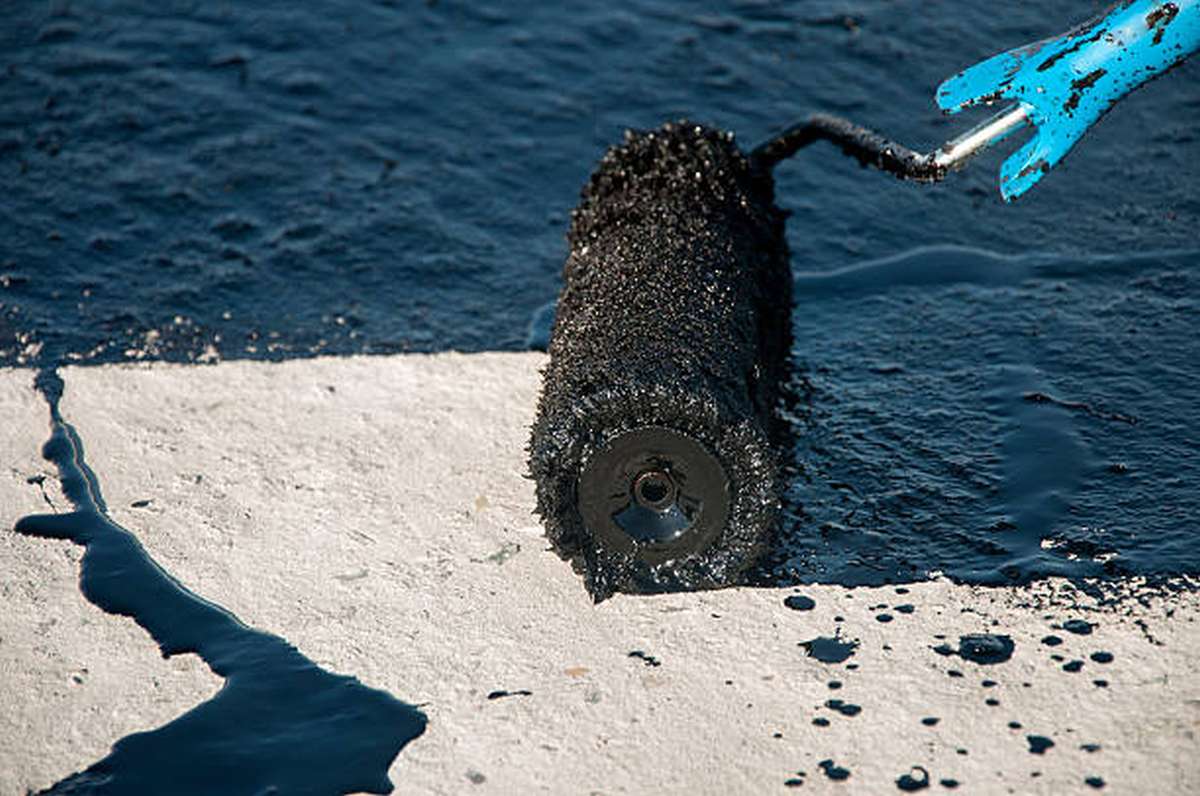Most people will associate the phrases "waterproof" and "basement" with something unfavourable. Water has always been a source of frustration for homeowners, but it has traditionally been especially troublesome in basements, which often house pricey possessions. There are a number of methods available for preventing water from entering a basement; but, if you plan to do the job yourself rather than hire a professional, there are a few things you should be aware of first.
Reasons Why Basement Waterproofing Is A Good Investment
Misdirected or clogged gutters are a common culprit in basement flooding.
Your belongings are in danger from water damage in the basement. The insurance provider might not be capable of replacing all of your things.
Waterproofing your property is a preventative measure that can help you avoid the loss of valuables and expensive repairs.
Read on to learn the benefits of basement waterproofing and why it's a good investment.
FAQs About Internal Waterproofing
Waterproofing your basement is worth the investment because you won't have to be concerned about mould growth. If this has been an issue in your home, you may see improvement in your breathing after the job is done. Mould and mildew can lead to many health issues if left untreated.
Waterproofing the outside of your foundation is the best way to shore up your basement. Interior waterproofing can prevent water damage from getting worse, but having the repairs done on the outside fixes the weaknesses where they start.
The length of time waterproofing lasts on a few different factors, including the amount of waterproofing product used, climate, and the severity of the initial damage. There's no set date with all the different constituents, but most professionals will warranty it for about ten years.
Water is a bitter foe of all the basements. YES, water around your foundation can come up through the concrete floor and can leave any material on its way soggy and damaged.
This is because the water in the soil can put constant pressure on basement walls. Plus, water follows the path of least resistance inside a home and, over time, can find its way into a basement. Therefore, it's important to check for signs of dampness in the basement when buying a house with a basement.
What Does Basement Waterproofing Mean?
Your basement can get damp in numerous ways. Thankfully, there is a way to fix the problem.
The best way to protect your basement from moisture and mould is to have it waterproofed. Protecting your basement from water damage is possible with the help of professionals. To complete the task, they employ specific methods and components.
Waterproofing is done to stop water from entering the basement. The use of sump pumps, drainage systems, and waterproofing sealants are all common methods for doing this. In addition, we have a team that can assess your house and your requirements.
Safeguarding your basement supplies is a top priority. Yet waterproofing can help you save money, effort, and time.
Outside waterproofing is essential if you don't want water and frost to seep into your home. Your foundation's erosion will be slowed down as a result of this as well. When it comes to controlling water flow and fixing gaps, inside waterproofing is your best bet.
Listed below are the leading causes of people deciding to waterproof their basement.
No More Nightmares About Flooding
Certain regions are more likely to be flooded because of their proximity to or exposure to major bodies of water. It's awful that people who don't live near the water might still be affected.
Waterproofing the basement can protect your home and possessions from the destructive effects of floods. Flooding is a regular problem for many homeowners, especially during periods of intense weather. The spring and fall seasons saw a noticeable uptick in the number of occurrences.
Waterproofing the basement can help stop mould growth, which is another good reason to do it. The basement environment should be dark, cool, and dry. You should be ready for flooding if you discover this is not the case.
Avoid Foundation Damage
To save money on costly foundation repairs, consider having your basement sealed off.
The foundation of a basement is vulnerable to water and soil erosion over time. In addition to water, ground pressure is another potential culprit in a leaking basement. When this occurs, water damage and wall cracks become obvious.
If your basement isn't secured by a waterproof membrane, it might leak water into the rest of the house and necessitate expensive repairs. Waterproofing, on the other hand, requires only a modest financial outlay. If the walls are still up, it's preferable to this plan than waiting till they fall.
If you have foundation damage, fixing it might help reduce your heating costs as well. Because of all the holes in the walls, it's going to be freezing in here.
Remove Mold And Mildew
Indoors, mould and mildew always are unwelcome visitors.
A basement waterproofing project is money well spent because it eliminates a major source of stress in the home: mould. If you've had this problem in your house, fixing it may help you breathe easier. Several health problems can arise from mould and mildew that go untreated.
Waterproofing your basement is important for the health and safety of your family. If you can prevent water from entering your house, you can prevent the return of mould and mildew.
Reduced Energy Bills
Have your heating and electricity costs increased recently?
Cracks inside the basement foundation are a leading cause of excessive energy costs. Water & cooler air might seep inside a building if the foundation is compromised.
If this occurs, you might find that raising the thermostat higher than usual is necessary. An uninsulated basement can also increase the relative humidity and temperature. Because of this, it may be challenging to cool it down and maintain control.
Investing in basement waterproofing can secure fully operational systems. Although waterproofing may seem like a big upfront cost, it actually pays for itself quite soon.
Increase The Value Of Your House
The increased value of your home is a good argument in favour of having the basement sealed off.
Unfinished basements are not a selling point for potential buyers. Having a basement that is both habitable and watertight, however, can add as much as 25% to a value of your property.
A home with chronic water leaks or flooding will have a hard time finding a buyer. The property's past could deter potential buyers. If you can resolve these difficulties from below, it will provide them tranquility and open the door to a business arrangement.
Spending money on upkeep and repairs will increase the value of your home. When it comes time to sell your home, this modest expenditure could more than pay for itself.
How Is A Basement Waterproofed?
Waterproofing can help safeguard your valuables and keep the indoor air quality healthy whether you use their basement as a playhouse again for kids, a home bar or entertaining guests, or just storage. This is a worthwhile improvement to make because water can cause mould and other problems, but what does it include, exactly?
See how the inside of a basement can be protected against water seepage here:
- Patch up
- Seal up any openings in the walls.
- If you want to make sure your windows, doors, and window wells are all sealed, caulk them.
- Use a watertight paint on the ground and the walls.
- Put money into a sump pump and drainage system.
What Is The ROI On Basement Waterproofing?
In most cases, the cost of waterproofing a basement will be recouped within 30 percent. Waterproofing has several uses, including minimising damage to the home's foundation and mould growth, making it a desirable feature for potential buyers.
What Is the Price Of Basement Waterproofing?
Basement waterproofing techniques have changed less rapidly than those for updating kitchens, replacing appliances, or repainting walls. This means that your waterproofing job, however you went about it, will likely remain in style for years to come.
The typical price tag to seal a basement against water is $4,600. There is a wide price range from $2,200 - $7,200 and beyond that which depends on the extent of the additional work you may require. You can figure on spending $5 to $10 per square foot on average.
Can I Do Basement Waterproofing Myself?
It is possible to waterproof a basement on your own if you are an experienced do-it-yourselfer. In addition to putting a waterproof coating and sealing any leaks or breaches in the walls, windows, window water sources, and doors, you may also need to set up a drainage system and a pump sump.
Depending on your degree of do-it-yourself expertise, you can take care of portion of the basement waterproofing yourself and hire a professional to take care of the remainder, maximising your return on investment.
Advantages Of Basement Waterproofing
Your home's appeal and value will plummet if the basement is always moist. Older kitchens and bathrooms don't add much to a home's value, but just a leaking basement can cause serious problems like water damage and mould growth that go far beyond mere aesthetics.
A improperly waterproofed basement will cause far more problems in the long run than the work involved in waterproofing it. To add insult to injury, it's possible that your insurance won't cover the loss of anything stored in your basement.
As a result, basement waterproofing is a must. Some of the upsides to basement waterproofing are as follows:
ROI
To get your money's worth out of a home renovation project, it's ideal for it to increase the property's desirability on the market. Adding to the value of basement waterproofing is the high rate of return that can be expected from the project.
Extra Space
You can use a basement that has been properly waterproofed for a variety of purposes, including as an extra bedroom, an office, a gym, or a secure repository for important papers.
Preventing Damage
Water seepage can weaken a structure's foundation or wall. Seeing the cracks can be difficult before the damage has already taken place.
Reduced Energy Bills
A basement that is too humid can cause problems for the rest of the house and force the air conditioner to work harder. It is possible that your heating and cooling bills could go down if you had your basement sealed.
Mould Prevention
A leaky basement is not only unappealing to potential buyers but also a prime location for mould growth.
Mold thrives in damp, dark places like your basement. Mold spores can aggravate asthma, trigger allergic reactions in the eyes and skin, and cause a variety of respiratory diseases. The musty odour that mould gives off is another reason to keep it out of your house.
Avoid Flooding
Waterproofing your basement is a good investment if you live in an area prone to severe weather, as it will help you avoid costly repairs to your home's structure, loss of valuable belongings, and more due to floods.
If you've calculated the ROI for waterproofing your basement, it's time to start working on it. Instead of attempting to do this critical home renovation on your own, you should look into contacting a local basement firm.
Increased Resale Value
Even if you don't intend to remain in your current house indefinitely, waterproofing the basement is a worthwhile investment. A properly waterproofed basement will continue to protect the home for decades, regardless of who lives there.
A home with such a basement waterproofing is more likely to sell quickly and for a higher price. Flash floods and big storms can occur anywhere, and homeowners looking for a stable property investment will enjoy a home that is low-risk for moisture concerns even if it doesn't rain as frequently or as heavily as in other locations.
Reduced Risk Of Expensive Repairs
It can be quite costly to repair home damage caused by water intrusion or persistent hydrostatic pressure. Costs to fix the damage could run into the thousands of dollars or so more.
A waterproofing system is an insurance policy against the cost of repairing your property in the event of either an unexpected flood or prolonged exposure to high humidity.
The basement waterproofing solution includes a drain tile system, a reliable sump pump, and appropriate grading to prevent water from pushing on your property in the first place. It's not if pressure & moisture will crack thru the foundation & cause issues in your home without them, but when. It could take decades for some homeowners, but it could also happen very rapidly. And if water seeps in, the problem only gets worse if nothing is done about it right once.
Foundation Reinforcement
The most compelling argument of basement waterproofing is money well spent is the fact that it helps to keep water out of the foundation of your home. Your home's foundation, as the name suggests, is the most crucial structural element. It's the backbone of your house, ensuring the security of your loved ones and their belongings.
Without proper basement waterproofing, a building's foundation is always at risk from the hydrostatic pressure and seepage from the soil. Although there are basement waterproofing systems that use membranes to reinforce the foundation directly, the truth is that any waterproofing system will do a great job of keeping water out.
You can't put a price on a secure base, especially considering its long-term value. But the reversal is true when it comes to the consequences of a foundation failing. Even if your home's foundation isn't severely damaged, moisture can seep in via these fissures, fostering the growth of mould and insects.
Conclusion
Basement waterproofing is a good investment to prevent water from entering a basement, save money, effort, and time, and protect valuables from flooding. Waterproofing the basement can help reduce foundation damage, reduce energy costs, remove mould and mildew, and increase the value of your home. Basement waterproofing can add as much as 25% to the value of a home, and can help safeguard valuables and keep indoor air quality healthy. It can also reduce damage to the home's foundation and mould growth. Basement waterproofing is an important part of any home renovation project, as it can increase the property's desirability and increase the return on investment.
It can also prevent water damage and mould growth, as well as reduce energy bills. Waterproofing your basement is a good investment if you live in an area prone to severe weather, as it reduces the risk of costly repairs and increases resale value. Basement waterproofing is essential for keeping water out of the foundation of a home's foundation, ensuring its security and long-term value.
Content Summary
- There are a number of methods available for preventing water from entering a basement; but, if you plan to do the job yourself rather than hire a professional, there are a few things you should be aware of first.
- Read on to learn the benefits of basement waterproofing and why it's a good investment.
- The best way to protect your basement from moisture and mould is to have it waterproofed.
- Protecting your basement from water damage is possible with the help of professionals.
- Waterproofing is done to stop water from entering the basement.
- Safeguarding your basement supplies is a top priority.
- Listed below are the leading causes of people deciding to waterproof their basement.
- To save money on costly foundation repairs, consider having your basement sealed off.
- Waterproofing your basement is important for the health and safety of your family.
- Investing in basement waterproofing can secure fully operational systems.
- Having a basement that is both habitable and watertight, however, can add as much as 25% to a value of your property.
- Spending money on upkeep and repairs will increase the value of your home.
- Use a watertight paint on the ground and the walls.
- In most cases, the cost of waterproofing a basement will be recouped within 30 percent.
- The typical price tag to seal a basement against water is $4,600.
- It is possible to waterproof a basement on your own if you are an experienced do-it-yourselfer.
- As a result, basement waterproofing is a must.
- Adding to the value of basement waterproofing is the high rate of return that can be expected from the project.
- If you've calculated the ROI for waterproofing your basement, it's time to start working on it.
- Even if you don't intend to remain in your current house indefinitely, waterproofing the basement is a worthwhile investment.
- A home with such a basement waterproofing is more likely to sell quickly and for a higher price.
- A waterproofing system is an insurance policy against the cost of repairing your property in the event of either an unexpected flood or prolonged exposure to high humidity.
- Foundation ReinforcementThe most compelling argument of basement waterproofing is money well spent is the fact that it helps to keep water out of the foundation of your home.
- Without proper basement waterproofing, a building's foundation is always at risk from the hydrostatic pressure and seepage from the soil.
- But the reversal is true when it comes to the consequences of a foundation failing.
- Even if your home's foundation isn't severely damaged, moisture can seep in via these fissures, fostering the growth of mould and insects.



